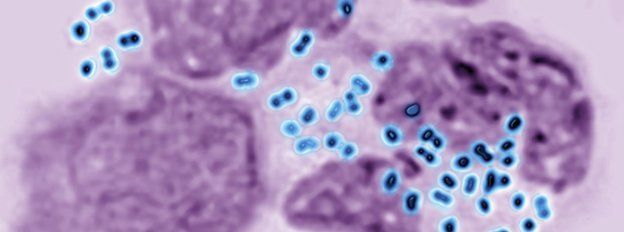What is gonorrhoea?
What is gonorrhoea?

The disease is caused by the
bacterium called Neisseria gonorrhoea.
The infection is spread by unprotected vaginal, oral and anal
sex.
Symptoms can include a thick green or yellow discharge from
sexual organs, pain when urinating and bleeding between periods.
However, of those infected, about one in 10 heterosexual men and
more than three-quarters of women, and gay men, have no easily recognisable
symptoms.
Untreated infection can lead to infertility, pelvic inflammatory
disease and can be passed on to a child during pregnancy.
"There are only three drug candidates in the entire drug
[development] pipeline and no guarantee any will make it out."
But ultimately, the WHO said vaccines would be needed to stop
gonorrhoea.
Prof Richard Stabler, from the London School of Hygiene &
Tropical Medicine, said: "Ever since the introduction of penicillin,
hailed as a reliable and quick cure, gonorrhoea has developed resistance to all
therapeutic antibiotics.
"In the past 15 years therapy has had to change three times
following increasing rates of resistance worldwide.
"We are now at a point where we are using the drugs of last
resort, but there are worrying signs as treatment failure due to resistant
strains has been documented."
Comments
Post a Comment